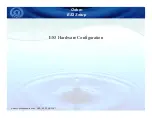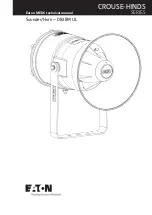
20
21
3. Do not use near combustible materials such as dry grass, leaves, and paper, which can
scorch and catch fire.
DANGER!
Use extreme caution when starting a fire. Some charcoal contains impurities that
cause sparks and popping. Sparks could cause minor or moderate injury or property damage.
4. Never bury tip under charcoal or wood.
5. Never leave the unit in the fire.
6. Sparks can be generated and fly towards you and others.
7. Sparks and ash can be blown out of designated burning area.
OPERATION
MAINTENANCE AND STORAGE
WARNING:
Always switch the product off, remove the battery and wait until the appliance is
completely cool down before performing inspection, maintenance, and cleaning work.
WARNING:
When servicing, use only identical replacement parts. Use of any other parts
could create a hazard or cause product damage.
General Cleaning Tips
Use a soft, dry brush to clean the air inlet area. Use only mild soap and a damp cloth to clean
the housing. Do not use house-hold cleaners, since many contain chemicals, which could
seriously damage the plastic housing of the fire starter.
Do not use gasoline, turpentine, lacquer thinner, paint thinner, dry cleaning fluids or similar
products on the fire starter.
WARNING!
Never allow any liquid to get inside the fire starter or immerse any part of the fire
starter into a liquid. Ensure the air inlet and the housing are clean and free of obstructions.
WARNING!
Do not at any time let brake fluids, gasoline, petroleum based products,
penetrating oils, etc., come in contact with plastic parts. Chemicals can damage, weaken or
destroy plastic which may result in serious personal injury.
Storage
WARNING! Let the fire starter cool to room temperature before placing it in storage.
-
Switch off the unit, remove the battery. Wait until it is completely cooled down.
Thoroughly clean the housing.
-
Store the fire starter, with the battery and charger indoors in a safe location out of the
reach of children. Keep away from corrosive agents, such as garden chemicals and de-
icing salt.
Disposal
Recycling the tool
-
Do not dispose of electrical appliances as unsorted municipal waste. Use separate
collection facilities.
-
Contact your local government agency for information regarding the collection systems
available.
-
If electrical appliances are disposed of in landfills or dumps, hazardous substances can
leak into the groundwater and get into the food chain, damaging your health and well-
being.
-
When replacing old appliances with new ones, the retailer is legally obligated to take
back your old appliance for disposal at least free of charge.
Содержание GY212304
Страница 2: ...2 3 A B b c d 1 3 4 5 6 2 a ...






























